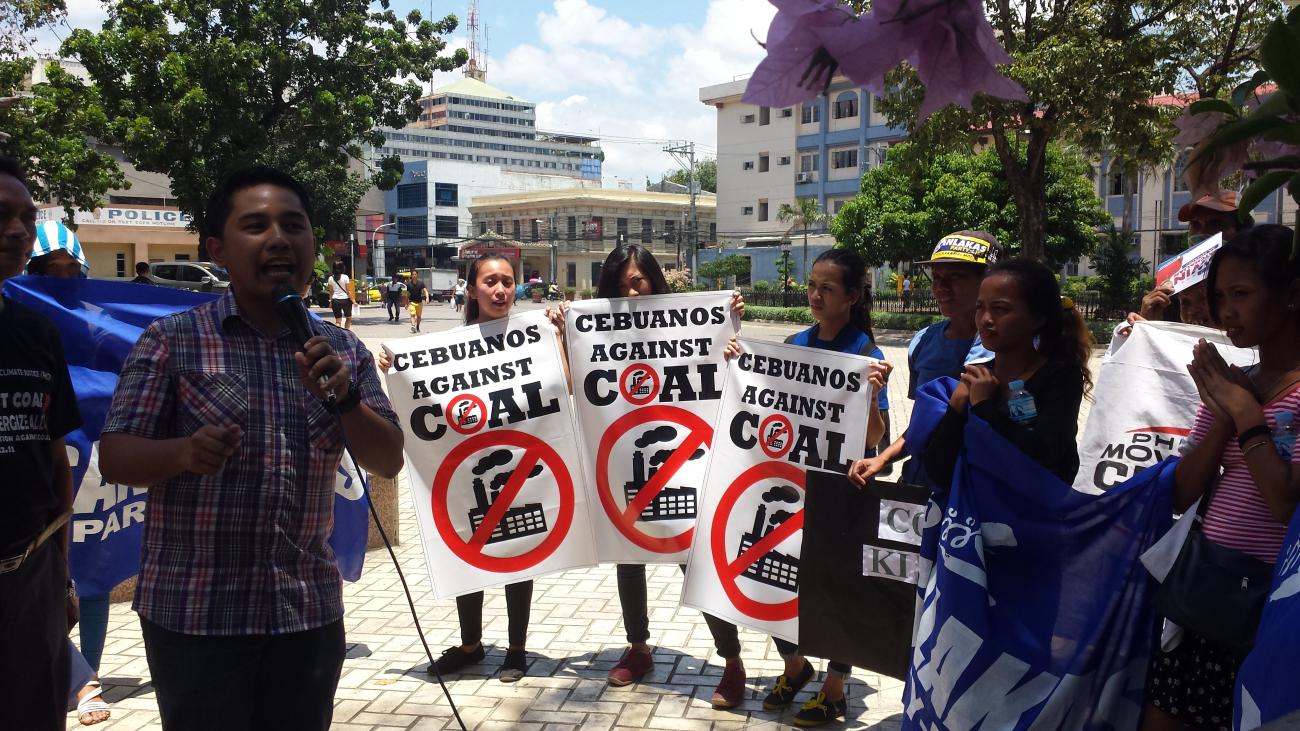Last March 30, Health Care Without Harm-Asia’s Healthy Energy Initiative was invited by the Cebu City Council to present its stand during a public hearing regarding a proposed 2 x 150 MW coal-fired thermal power plant project. Below is the written position paper submitted by the Initiative to the Cebu City government.
PROTECT CEBUANO’S HEALTH FROM COAL AND CLIMATE CHANGE –
NO TO COAL PLANT IN CEBU CITY!
The Healthy Energy Initiative of Heath Care Without Harm-Asia would like to express its opposition to the 2 x 150 MW coal-fired thermal power plant project proposed to be constructed in Barangay Sawang Calero, Cebu City by the Ludo Power Corporation.
The global scientific evidence on the health effects of coal is unequivocal. The combustion of coal produces a broad array of particulate matter, noxious gases, and heavy metals that pollute the air, soil, and water in the host communities and dispersed at long distances to the surrounding regions. This direct environmental pollution thus results in a wide range of disease conditions that negatively affect every organ system in the body – from heart and lung diseases to pre-term births and congenital anomalies even in the unborn.
Many epidemiological studies have already estimated the hidden health costs of coal, from up to 60,000 deaths per year in developed countries such as the United States to as much as 115,000 deaths per year in developing countries like India. A recent study commissioned by Greenpeace to Harvard University revealed that both existing and proposed coal power plants in the Philippines can cause up to 2,400 deaths annually – clearly a conservative estimate. These deaths do not only mean avoidable and unnecessary PhilHealth spending or lost labor productivity – this number also represents young lives that will not be able to reach their full potential, which is a clear violation of fundamental human rights.
Promoters of continued coal use argue that these immediate health effects can be minimized through the adoption of ‘clean coal’ technologies. However, in addition to their expensive cost, these technologies perpetuate coal dependence, even increase coal consumption under the guise of combustion efficiency, and ultimately, still utilize the same coal material being used with older technologies. In short, these technologies do little to mitigate the risks both to health and the global climate.
In addition to the health costs, the much bigger impact of coal relates to the issue of global warming. It is already established in scientific literature, particularly in the reports of the United Nations Intergovernmental Panel on Climate Change (IPCC), that coal and other fossil fuels are the leading drivers of anthropogenic climate change. Last December 2015, during the 21st Conference of Parties (COP 21) of the United Nations Framework Convention on Climate Change in Paris, the world’s governments already agreed to limit the world’s temperature rise to 2 degrees Celsius, dramatically reduce greenhouse gas emissions from energy and other sectors, and usher the transition to cleaner renewable energy.
For the health sector, climate change resulting from the burning of coal is a pressing issue and a medical emergency. In 2009, the medical journal The Lancet declared that climate change is “the biggest global health threat of the 21st century.” Being ranked first among the most climate-vulnerable countries in the world by the Climate Risk Index in 2015, the Philippines is already experiencing both the obvious and subtle health effects of climate change, from morbidity and mortality due to natural disasters to changing patterns of spread of infectious diseases, among others. The health sector is committed to prevent the further worsening of this health crisis – and this means stopping the biggest drivers of climate change, which include coal-driven electricity generation.
Finally, we wish to inform that the global public health community has already reached a consensus that coal indeed kills lives, and therefore it is time to kill coal within our lifetime. In 2015 alone, the following statements have been released by various international bodies:
The medical journal The Lancet specifically called for the “rapid phase out of coal from the global energy mix,” which will not only mitigate climate change but also result in a wide range of public health co-benefits such as reduction in cardiovascular and respiratory diseases brought about by air pollution.
The World Federation of Public Health Associations, through its 2015 Kolkata Call to Action, advocated for “a rapid phase out of coal for electricity production and greater investment in renewable energy technologies as a significant investment in global health and healthy communities.”
The 68th World Health Assembly passed a resolution last May 2015 on air pollution and health, calling for addressing the root causes of air pollution such as electricity generation from fossil fuels.
The Healthy Energy Initiative, through its Paris Platform for Healthy Energy, called for ceasing the “deadly and costly dependence on fossil fuels by eliminating fossil fuel subsidies, avoiding new coal projects, and phasing out coal-fired power generation.” The Philippine Medical Association signed this platform.
Constructing a new coal-fired power plant in Cebu City is a huge step backward in the road towards cutting our societal addiction to coal, achieving universal health for all, and stabilizing the global climate. The Healthy Energy Initiative therefore hopes that Cebu City will stand firm with the global community in saying No to unhealthy coal and Yes to healthy renewable energy. It is our fervent hope that Cebu City be remembered not for failing to meet the goals of the Paris Agreement and for prioritizing short-term private profit over long-term public health, but as a shining example of a modern city that chose to protect the health of both people and planet.
A pdf copy of this statement can be accessed here.
